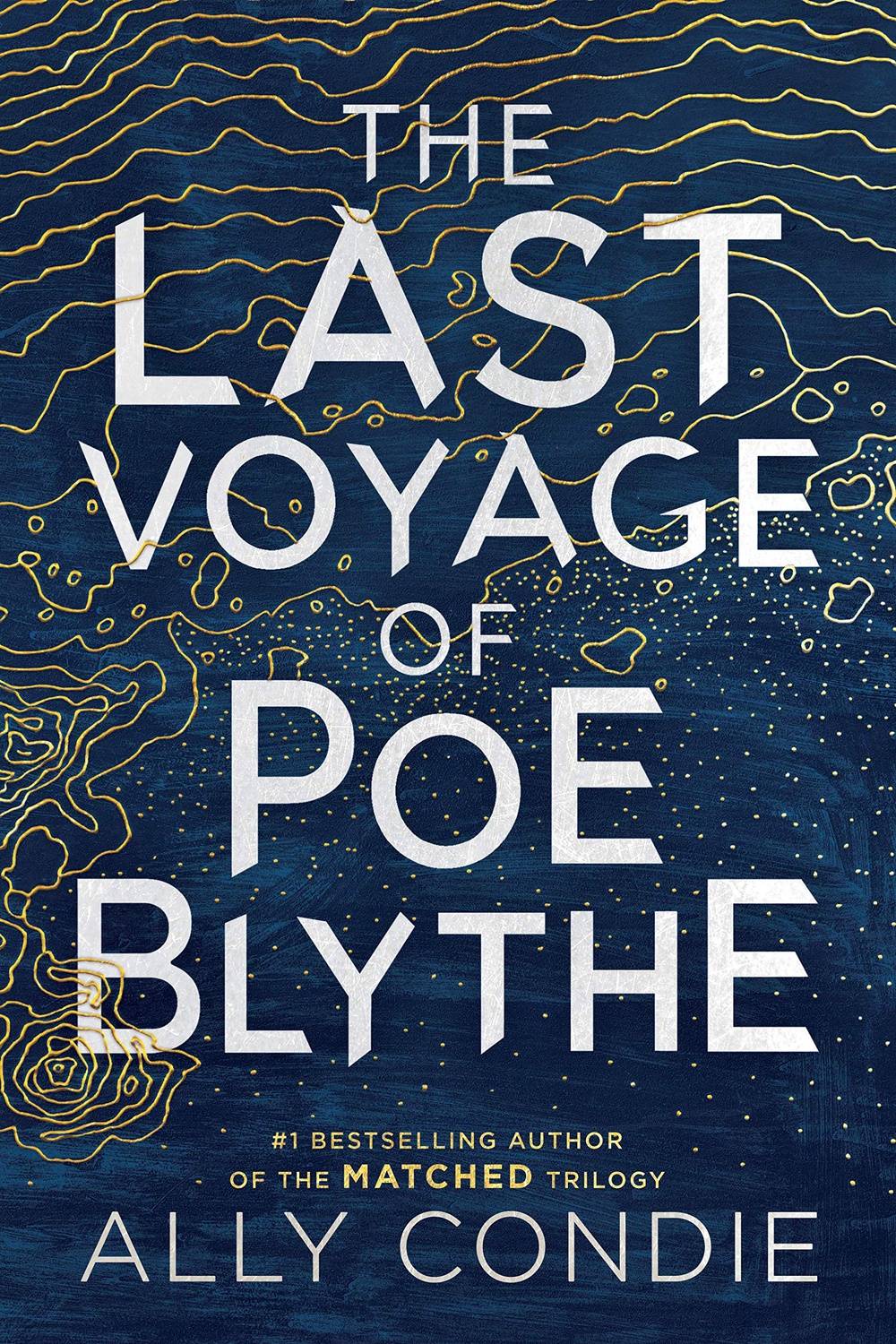
News
Harvard Researchers Develop AI-Driven Framework To Study Social Interactions, A Step Forward for Autism Research

News
Harvard Innovation Labs Announces 25 President’s Innovation Challenge Finalists

News
Graduate Student Council To Vote on Meeting Attendance Policy

News
Pop Hits and Politics: At Yardfest, Students Dance to Bedingfield and a Student Band Condemns Trump

News
Billionaire Investor Gerald Chan Under Scrutiny for Neglect of Historic Harvard Square Theater
‘The Last Voyage of Poe Blythe’ Finds Bittersweet Love in the Dredge
3 Stars
Ally Condie’s most recent novel, “The Last Voyage of Poe Blythe,” finds a female hero in a world that is dark, muddy, and desperate. The novel is set around a precarious dystopian commune named the Outpost where the social order seems to depend on a constant supply of gold, the pursuit of which requires perilous quests upon armored boats out beyond the safety of the Outpost’s walls. These unfamiliar territories lead to violent clashes with river raiders, a group of vigilantes who will stop at nothing to intercept the Outpost’s mining ships. The novel’s protagonist, Poe Blythe, once undertook one of these journeys and lost the person she treasured the most, her lover Call, at the hands of the raiders. From that moment onward, Poe is fixated with undertaking vengeance on the raiders. In the novel, Condie traces Poe’s journey, both physical and internal, as she once again comes face to face with the river raiders, this time as captain of the ship. As their mining quest falls apart however, Poe begins to realize there is much more to the Outpost than she first expected, and Condie compellingly depicts Poe’s emotional transition from grief to hope, as new understandings may finally allow her to move past tragedy.
Condie’s novel, though focused primarily on a teenager, aims to tackle notably adult themes. The entire text is richly morose as Condie attempts to capture the aftershocks of a tragic loss from within the mind of Poe Blythe. As such, the novel is very much an internal narrative, heavy with saccharine yearnings for Poe’s lost lover: “Call. I have missed you. More than I can say. Or breathe. Or live.” Poe’s constant longing for Call, though melodramatic, is compelling in its youthful angst. Its proclamatory style, in its performative vigor, undeniably aims to satisfy the romantic appetites of teenage readers, who can latch onto her arduous journey down the river through the constant flow of bittersweet memories recalling days gone by.
Indeed, memories of mellow smut between the doomed couple are the essential lighthearted counterpart to a depiction of society that is surprisingly technical. The Outpost, and the bureaucracy surrounding it, is filled with jargon that, at times, can feel excessive. Every associated character or event has some capital-letter title: “the Admiral,” “the Quorum,” “the Desertion.” The reader must grapple with an overload of concepts, explained with varying levels of clarity. This terminology is coupled with lengthy functional descriptions of the ship, such as a particularly dreary passage about “a rectangular protrusion called the tailing stacker that just out at the back of the ship. It’s high above the river and a constant stream of tailings, or slicken — rock and debris — cascades out of it as long as the dredge is mining.” Such passages are more reminiscent of a seventh-grade geography lesson than a breathless YA novel, and such technical language is strikingly cumbersome in a broadly lyrical text.
Still, despite these stumbles, in her commitment to seriousness, Condie achieves a sense of dramatic tension which undoubtedly will strike a chord with younger audiences. The author’s stylistic habit of using short sentences to add drama, at its worst seems overblown (one dramatic description of a dessert comes to mind: “He’s carrying a cake. A ridiculous, towering white cake. Something so frivolous and rare… …But somehow, he managed it.”), but at its best, forces the reader into the moment: “‘Poe,’ he said. We were both breathing hard. ‘I was dreaming. I was kissing you.” Indeed, in creating a character as convincing as Poe, the reader is genuinely invested in her romantic progress, and despite any narrative inconsistencies, Poe’s gentle drift from her tragic loss to a newly blossoming romance orients the reader throughout the novel.
Want to keep up with breaking news? Subscribe to our email newsletter.
From Our Advertisers

Over 300+ courses at prestigious colleges and universities in the US and UK are at your disposal.

Where you should have gotten your protein since 1998.

Serve as a proctor for Harvard Summer School (HSS) students, either in the Secondary School Program (SSP), General Program (GP), or Pre-College Program.

With an increasingly competitive Law School admissions process, it's important to understand what makes an applicant stand out.

Welcome to your one-stop gifting destination for men and women—it's like your neighborhood holiday shop, but way cooler.

HUSL seeks to create and empower a community of students who are seeking pathways into the Sports Business Industry.

